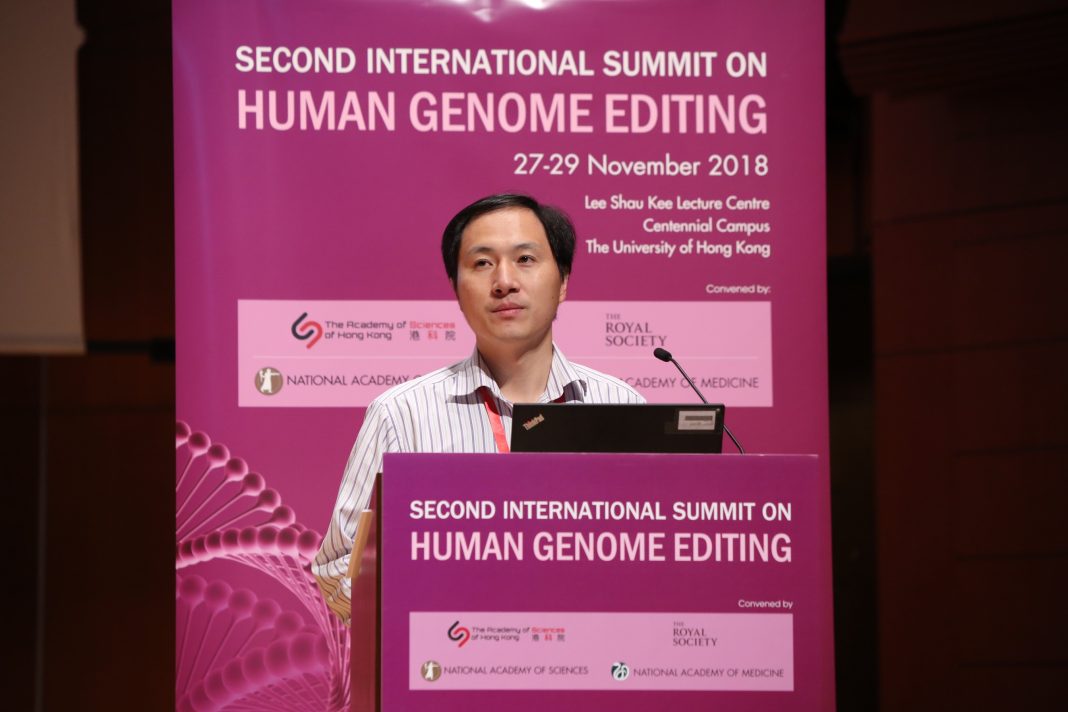In sci-fi movie Gattaca, the future society is in the era of eugenics where a social hierarchy is determined by DNA. In Gattaca, gene editing has become prevalent for the rich to genetically engineer their babies. Those babies will be born with artificial superior genes and will become the next leaders of the society in the Gattaca world. Only the beneficiaries of gene editing are predestined to rule society. The movie came out more than 20 years ago and finally (like the movie), at the end of last year, for the first time, gene-edited twins have created by a scientist named He Jiankui. Is our society entering the era of human gene-editing?

Gattaca movie poster (Source: Den of Geek!, click the image to visit the website)
Pandora’s box is finally opened.
In November 2018, He Jiankui, a gene scientist, announced to the world that he had created genetically engineered twin babies with CRISPR-Cas9. The CRISPR-Cas9 system is originally found in bacteria and recently adapted to our gene-editing technology. An enzyme called Cas9 binds a target DNA and splices it. It acts like “DNA-cutting scissors”. After cutting DNA, scientists can add or remove DNA to the target. With this powerful technology, in 2015, Chinese scientists genetically altered human embryos. Now, we must think about an ethical issue and the consequence of human gene-editing.

He Jiankui, the scientist who is responsible for the first gene-edited babies (Source: Genengnews, click the image to visit the website)
On Human Gene Editing: International Summit Statement
Scientists had a global discussion over three days December 1 – 3, 2015 in Washington, D.C. and they made a public statement about human gene editing. According to the statement, “it would be irresponsible to perform gene-editing for human embryo without knowing the consequence”. Gene modifying technology has a relatively short history in science and we are not 100% sure its safety.
The issue with gene-editing is not only confined to the ethics and there are several reasons why human embryo should not be genetically modified now. First, inaccurate editing can harm embryos. Second, it is impossible to predict how altering certain genes interact with other genes and the environment because of its complexity. Third, we must consider the individual and the future generations who will carry the genetic alterations. Fourth, once introduced, genetic alterations will spread all over the world and we cannot reverse it. Fifth, some people can use it for genetic ‘enhancements’ and worsen social inequities. Until we can handle all the five possible risks listed by the statement, gene-editing should not be used for human babies. Even we are not 100% sure that Genetically modified foods (GMO) are safe. We can only say that so far no major hazard has not been shown.
Conclusion
In many countries, it is illegal to edit gene in human embryos for ‘clinical use’ and last year, He Jiankui broke the law and created genetically modified human babies for the first time. We must consider this incident seriously with a view of ethics and science.
(Video source CNN)
